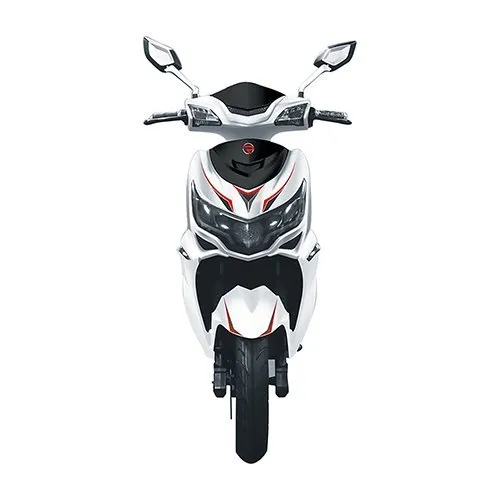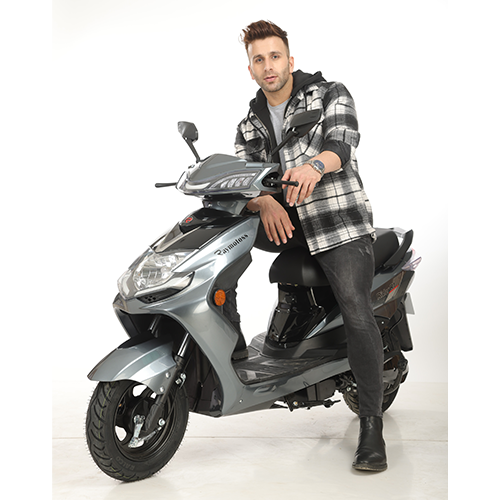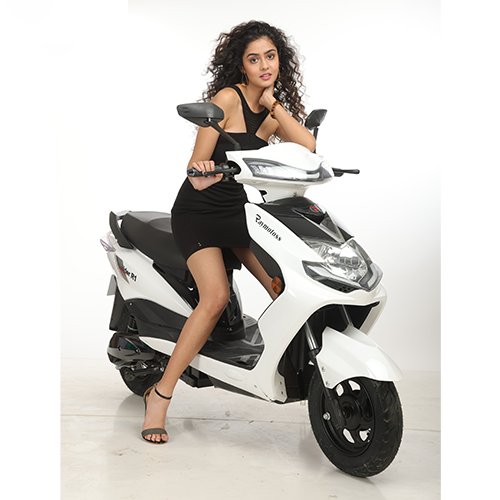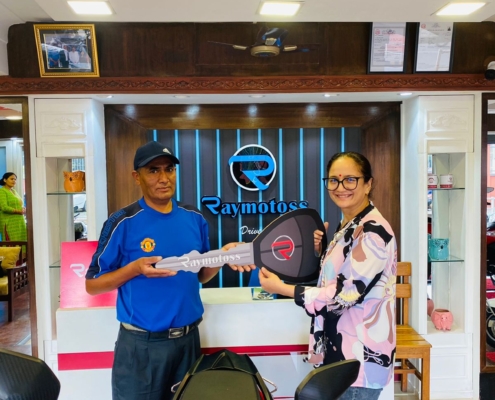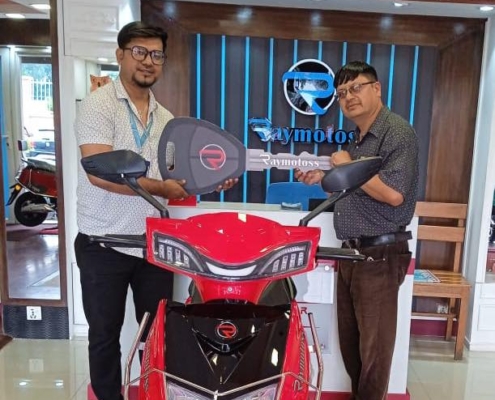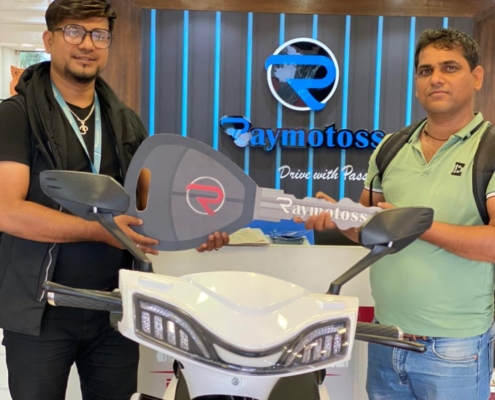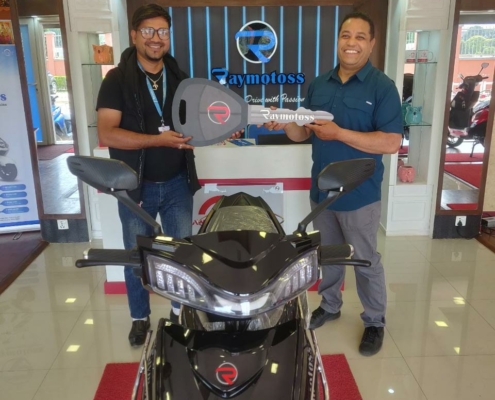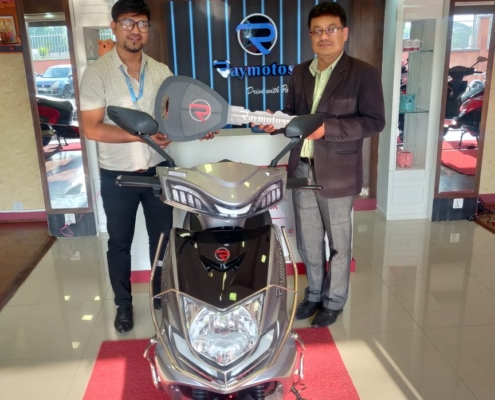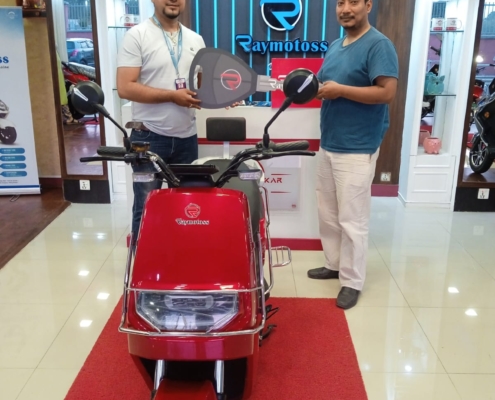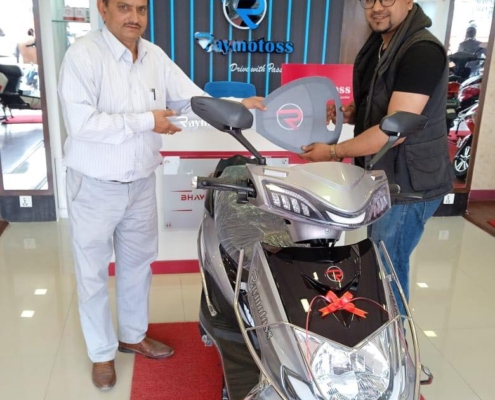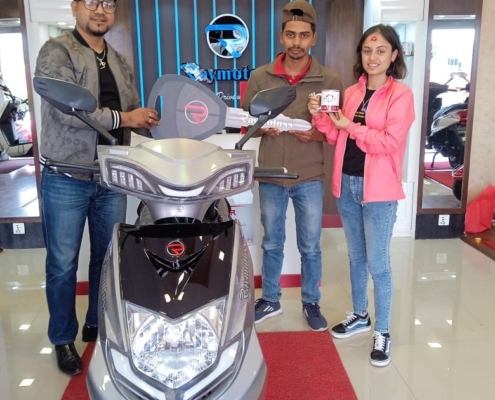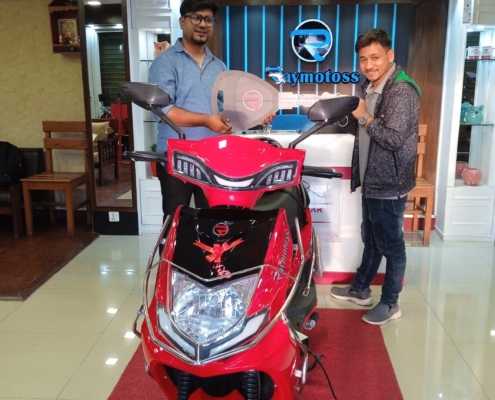THE FUTURE OF
DRIVING ELECTRIC VEHICLES IS HERE
With clean air and no gasoline, you’re driving the future of transportation.
STORM
Raymotoss Storm Timeless elegance for a new age ride with new feature. choose Electric Vehicles at the Most Affordable Price. We care for your needs and time and that is why our rockstar charges 50% in 1.5 hrs. Also it has a long life as it can run smoothly and take you miles of smile.
3000
Peak power ( w )
100
Range upto ( km )
RIDER R1
Memories remain forever, create memories with Raymotoss Rider R1 !! USB mobile charging, Break Sensor, keyless start, Digital speedometer are some of the interesting and unique features of the scooter. We also provide 2 years of motor warranty.
2500
Peak power ( w )
80
Range upto ( km )
BOOK TEST DRIVE
FREQUENTLY ASKED QUESTIONS
Do electric vehicles make noise?
Electric Vehicles (EVs) are ultra quiet and make almost no noise. The only noise they make is due to wind resistance and friction of tires with the road while driving at high speed.
How long does an electric vehicle take to charge completely in Nepal?
It takes 4 to 12 hours to charge an electric vehicle completely in Nepal but charging time considerably depends on the battery capacity and chargers used. At charging stations, it takes 4 to 6 hours, while at home it might take 8 to 12 hours to get charged completely.
How many electric charging stations are there in Nepal?
There are 40+ electric vehicle charging stations across Nepal. This number is likely to be increased in the future since the automobile industry is shifting toward clean energy.
What is the average range of an electric vehicle in Nepal?
Electric Scooter in Nepal normally provides 80-130 km mileage on a single charge. Electric cars normally provide 200-450 km mileage on a single charge in Nepal.
How economical is an Electric Vehicle in Nepal?
Electric Vehicles are more economical than gas-powered vehicles. Research and study show that Electric motors convert over 77-85 percent of electrical energy into mechanical energy, or motion, compared to less than 30-40 percent for a gas combustion engine. Since the average cost to fuel an electric car is much lesser than gas-powered vehicles, EVs are more economical in Nepal.

